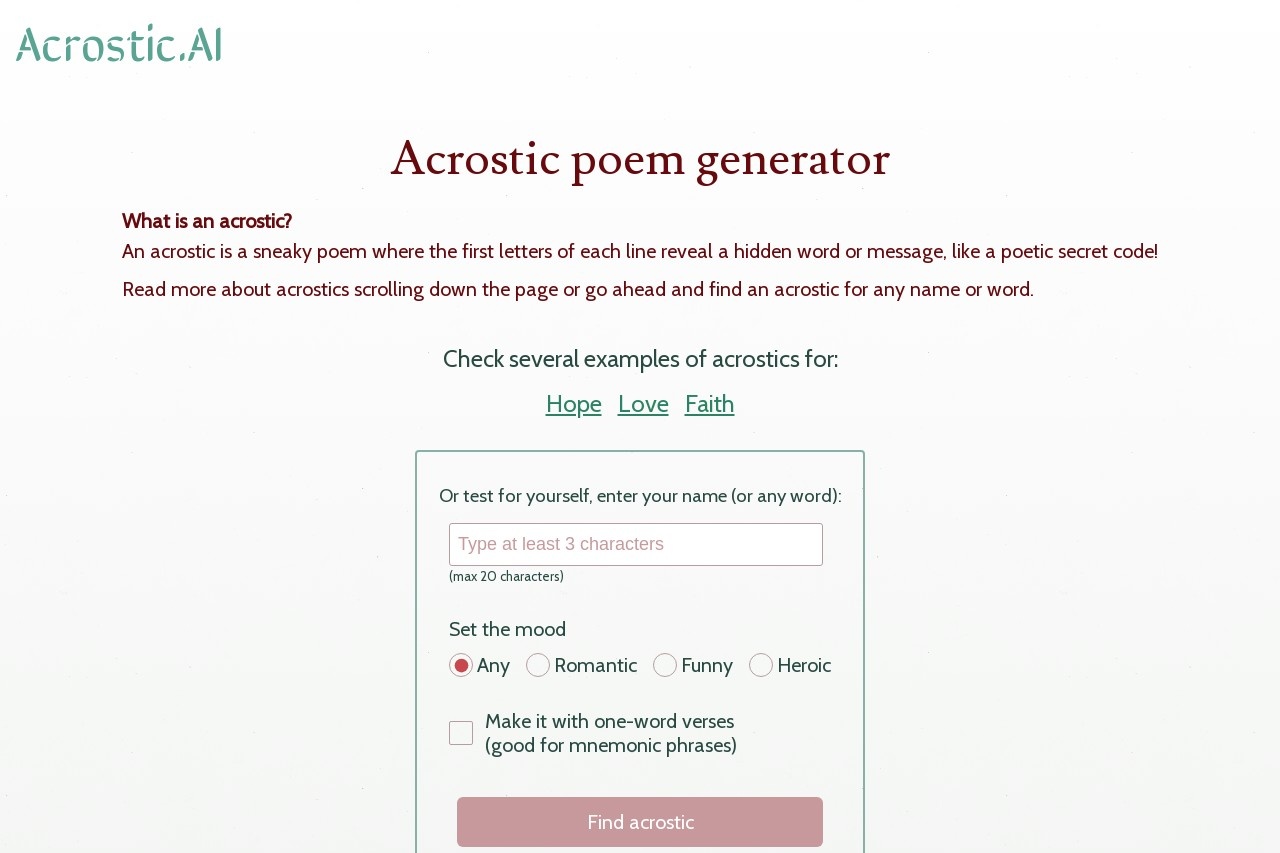
An acrostic is a poem where the first letters of each line form a hidden word or message.
Acrostic
Acrostic
An acrostic is a unique form of poetry where the first letters of each line spell out a hidden word or message when read vertically. This creative technique has been used for centuries to add layers of meaning to poems, names, or themes.
How Acrostics Work
In an acrostic poem, the initial letters of each line are carefully chosen to form a word or phrase related to the poem's subject. For example:
- Luminous stars twinkle above
- Over the silent, dreaming earth
- Vast constellations tell their stories
- Eternal beauty in the night sky
Here, the first letters spell "LOVE," which becomes the hidden theme of the poem.
Historical Use of Acrostics
Acrostics have appeared in:
- Ancient Hebrew poetry (including some Psalms)
- Medieval religious texts
- Renaissance love poems
- Modern word puzzles and mnemonic devices
Types of Acrostics
There are several variations of this poetic form:
- Simple Acrostic: First letters spell a word
- Double Acrostic: First and last letters form words
- Mesostich: Middle letters form the message
- Telestich: Final letters create the hidden word
Why Writers Use Acrostics
This poetic form serves multiple purposes:
- Adds hidden meaning to poetry
- Creates memorable patterns
- Challenges the writer's creativity
- Engages readers in discovering the hidden message
While acrostics can be simple word games, skilled poets use them to create profound works where the hidden message enhances the poem's overall meaning. The constraint of the form often leads to unexpected creative solutions.
















